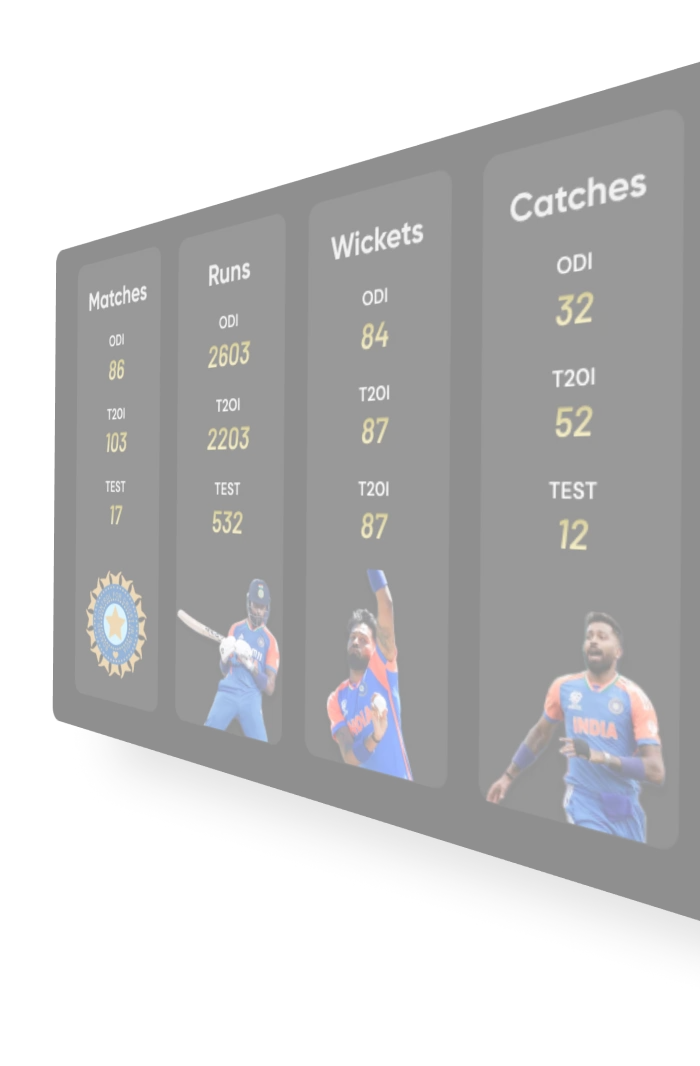
Table Of Contents

Players with Fastest Centuries in IPL History from 2008 to 2025

Highest Team Score in IPL Till 2025: Biggest Scorecards Ever

Players with Most Wickets in IPL History from 2008 to 2025
Royal Challengers Bengaluru holds the infamous record lowest team score in the IPL. For a very long time, RCB were the team of two extremes. They held the record for the highest as well as the lowest total. In 2017 against arch-rivals, Kolkata Knight Riders, RCB were bowled out for 49 runs which is the lowest team score in the IPL. The historic record for KKR was made possible thanks to some great bowling and ordinary shot-making from RCB batters.
RCB was chasing a low score of 132 runs in the second innings. Skipper, Virat Kohli was the first batter to be dismissed for a golden duck. Nathan Coulter-Nile picked up the first wicket while Umesh Yadav in the second over dismissed Mandeep Singh. AB de Villiers and Kedar Jadhav were the next dismissals as Coulter-Nile stopped the momentum of their chase before it could begin. Chris Woakes and Colin de Grandhomme picked three wickets each as the shambolic performance from RCB came to an end.
Rajasthan Royals makes it into this list with the second-lowest team score in IPL. RR was bowled out for only 58 runs by RCB in 2009. It was made possible thanks to an incredible bowling effort from Anil Kumble. The former Indian leg-spinner bowled the best bowling figures by an Indian.
Rajasthan was chasing 134 runs in the second innings to win the match.
Praveen Kumar and Jesse Ryder struck early in the innings picking up two wickets each. After the pacers were done with their overs, Kumble was introduced into the attack. In his second over, he picked up two wickets. In his third over, he picked up two more and bowled out the RR line-up by taking another wicket in his fourth over. His economical bowling allowed only five runs to be made in his 19 balls which restricted the 2008 IPL Champion to only 58 runs.


For the second time, Rajasthan Royals make it into this list. Once again it is the RCB bowling lineup who have successfully restricted the inaugural champion to a low score. Rajasthan Royals was bowled out for 59 runs in 2023 at their home ground in Jaipur. This is the lowest team score in IPL for a team in their home ground.
Chasing 172, RR got off to a poor start. Openers, Yashasvi Jaiswal and Jos Buttler were dismissed for silver ducks by Mohammed Siraj and Wayne Parnell respectively. The South African pacer went on to pick two more wickets as he received good support from the spinners. Michael Bracewell and Karn Sharma picked up two wickets each while Glenn Maxwell picked the wicket of Shimron Hetmyer. Hetmyer with 35 runs was the highest run-scorer for the Royals.
In 2017, in spite of having some of the best young batting stars, the Delhi Daredevils failed more than they succeeded. It was the five-time champions, Mumbai Indians who restricted the Daredevils to their lowest team score in the IPL. The Mumbai Indians put up a great performance in the first innings thanks to the West Indies duo of Lendl Simmons and Kieron Pollard. MI gave a target of 213 to Delhi Daredevils to win the match.
The second innings started in the worst way possible for Delhi as Sanju Samson was dismissed on the first ball of the innings for a golden duck. Lasith Malinga and Jasprit Bumrah picked three more wickets in the powerplay. However, it was the spinners, Harbhajan Singh and Karn Sharma who were responsible for bowling the opposition out for only 66 runs. Harbhajan and Karn picked up three wickets each.


Once again it is the Delhi Daredevils who make it into this list. It was again in 2017 when DD was bowled out for 67 runs. 67 is the lowest team score in the IPL in the first innings. Kings XI Punjab was the bowling team as the young batters from DD once again failed.
Sandeep Sharma was the star performer. The Indian pacer with swing on his side took three wickets in the powerplay. After the powerplay, spin was introduced. The DD batters could not cope with it and lost three wickets in the next three overs after the powerplay to Axar Patel and Glenn Maxwell. Pacers returned and Varun Aaron, Mohit Sharma and Sandeep picked up the last five wickets. Punjab won the match inside eight overs without losing a single wicket in the second innings.






More Links